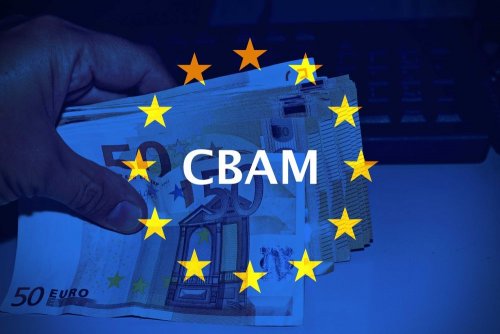Specialists of the International Trade Council (ITC) have compiled a list of challenges and opportunities that small enterprises face in connection with the introduction of the cross-border carbon adjustment mechanism (CBAM).
This list, as well as the legal and practical problems that the new European mechanism faces in the launch process, ITC posted on the LinkedIn page.
Challenges
Among the challenges, experts of the International Trade Council – Chairman of the ITC Business Council for Supply Chains Kenneth Tombs and his deputy Rafael Molho – named the following:
- Increasing compliance costs
Having to measure, report and verify the carbon content of your products can be costly and resource intensive. This will be a particularly challenging task for businesses with limited budgets and staff.
- Competitive disadvantages
Small businesses often lack the economies of scale that large corporations have. Additional costs associated with CBAM may make it difficult for them to compete both within the EU and on international markets. This can lead to a decrease in the market share and profitability of small firms.
- Complex supply chains
Many small businesses rely on complex and often global supply chains. Ensuring that all links in the supply chain comply with the requirements of the cross-border carbon adjustment mechanism can be a difficult task. Such complexity can lead to increased operational costs and logistical problems.
- Increase in trade costs
CBAM is likely to increase the cost of exporting goods to the EU for countries with less stringent climate policies. This is because exporters will need to buy CBAM certificates, which reflect the carbon price paid by EU producers.
- Changing global trade patterns
Countries with a larger carbon footprint in their manufacturing processes may see their exports to the EU decline. Conversely, countries with lower carbon emissions can gain a competitive advantage in the EU market.
- Incentives for greener practices
A cross-border carbon adjustment mechanism can encourage non-EU countries to adopt greener technologies and stricter environmental regulations to maintain access to the EU market. This could lead to a global push for more sustainable production methods.
- Potential trade disputes
Implementation of the CBAM could trigger trade disputes and retaliatory measures from countries that view it as a protectionist measure. These disputes may escalate within international trade forums such as the World Trade Organization (WTO).
- Impact on developing countries
Developing countries often rely on carbon-intensive industries and may therefore be disproportionately affected. They may face significant economic challenges in adapting to the new requirements, potentially leading to reduced exports and economic hardship.
Opportunities
At the same time, experts see a number of opportunities for small businesses associated with the introduction of the cross-border carbon adjustment mechanism.
- Market differentiation
Compliance with a cross-border carbon adjustment mechanism can give small businesses a unique advantage, especially in markets where consumers are becoming more environmentally conscious. By demonstrating their commitment to the principles of sustainable development, small businesses can profitably differentiate themselves from their competitors.
- Innovative incentives
The need to reduce carbon emissions can drive innovation in small businesses. Investments in green technology and sustainable practices can lead to long-term cost savings and new business opportunities. Early adopters may also benefit from potential government incentives and subsidies.
- Improving relationships in the supply chain
The need for greater collaboration and transparency in supply chains can strengthen relationships with suppliers and customers. By working closely with partners to meet CBAM requirements, small businesses can build more resilient and resilient supply chains.
As EcoPolitic told earlier, European businesses called CBAM "bureaucratic madness" because of the complexity of reporting within CBAM.





